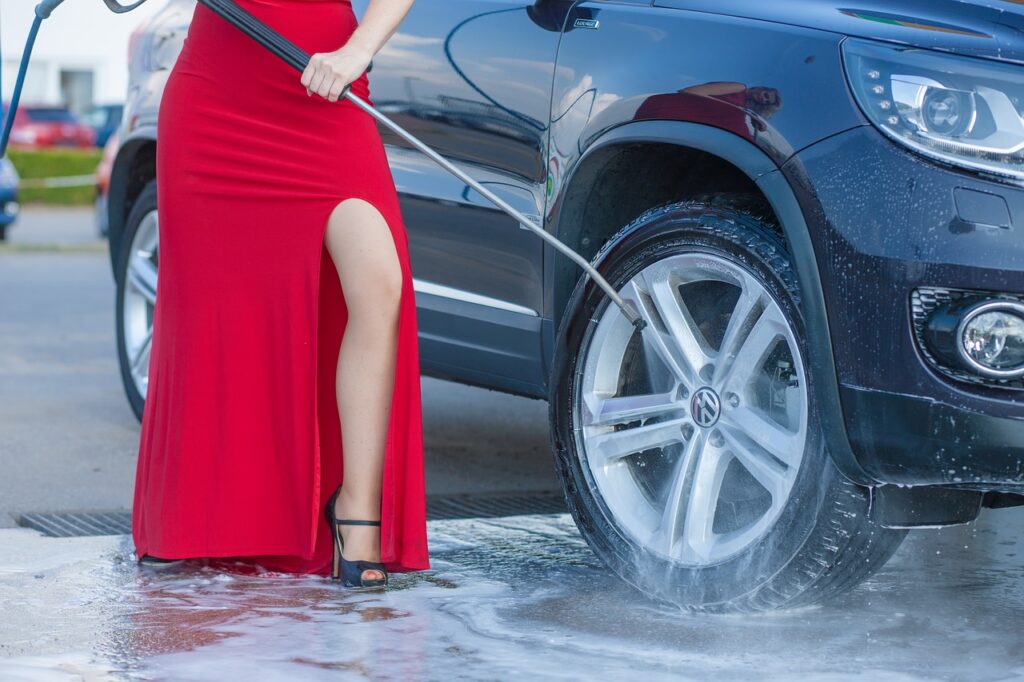 There are millions of vehicle owners across the world, yet so many still do not know the basic things required for the proper upkeep of their car. Maintenance is key to the longevity of a vehicle, and that includes the interior, exterior, under the hood and of course the paperwork. It’s not a one size fits all situation when it comes to car maintenance, so it always recommended that you follow the manufacturer’s instructions instead of taking your vehicle to a random repair shop.
There are millions of vehicle owners across the world, yet so many still do not know the basic things required for the proper upkeep of their car. Maintenance is key to the longevity of a vehicle, and that includes the interior, exterior, under the hood and of course the paperwork. It’s not a one size fits all situation when it comes to car maintenance, so it always recommended that you follow the manufacturer’s instructions instead of taking your vehicle to a random repair shop.
Also, there are sections of the vehicle that require frequent checks more than others. Here’s a list of seven essentials you need to ensure that your vehicle, regardless of year or model, performs at an optimum level.
Table of Contents
CREATE A SCHEDULE FOR PREVENTIVE CARE
Research the type of vehicle you have and look for a highly rated workshop in your area that specifically deals with your make and model vehicle. Put the return dates in your calendar, so that you can always be on the ball with your vehicle’s maintenance. You are supposed to know when servicing is needed.
DETAILING YOUR CAR
Regular vacuuming prevents items from getting lodged or even rotting in your vehicle. This also prevents mould and mildew from building up, keeping your car smelling fresh. Wipe the seats and regularly touched areas with recommended products for the vehicle interior. If you do not wash the vehicle yourself, try to choose a car wash that uses soft brushes that won’t scratch the car.
SHORT TERM VEHICLE CHECK
- Oil and Coolant: must be checked on a monthly basis or after few gas fill-ups, depending on how often or far you drive. Make sure to do the check only when your engine is cool enough. Low levels of oil or coolant can lead to major engine problems. The owner’s manual in your glove compartment will indicate where to find these under the vehicle hood.
ii Air Filter: regulates the airflow to your engine in order to keep debris out. Proper attire follows also helps fuel efficiency, reduces emissions, and help protect the engine. In fact, you can change the filter yourself by following your instruction manual.
iii. Tire tread and pressure: are key to a safe ride and fuel efficiency.
- All Lights and Signals
It’s easy to miss when one of your lights or signals isn’t working. Each month, you should walk around your car and observe both your parking light and turn signals.
- Tire Rotation: Getting your tires rotated frequently will allow for a more stable ride. The treading on the outer part wears faster and rotating the tires will make sure that the treading disintegrates evenly and allow for safer driving.
CHECKS TO MAKEOVER THE LONG TERM
- Applying Wax: Twice per year is the recommended number of times to wax your vehicle in order to keep it shiny and prevent rust.
- Transmission fluid: This operates like the oil to protect your vehicle’s engine but even more so it keeps all the moving parts working properly. The vehicle manufacturers know best, so follow there instruction on when to check and change your transmission fluid.
iii. Shocks And Struts: The smoothness of your ride, especially on bumpy terrains is determined by the shocks and struts on your vehicle. Check them at 50 thousand miles.
- Coolant System: To prevent your vehicle overheating, your radiator has to be flushed sometimes.
- Battery Performance: This sends power to the starter and can corrode during harsh temperatures. It must be tested annually to check its power level.
CHANGE TIRES
Driving conditions differ, depending on where you live. Road conditions, the way you drive and especially winter conditions, can destroy your vehicle tires. It’s important to let a professional help you decide what tires are perfect for the conditions that you operate the vehicle under.
UP TO DATE INSURANCE AND DOCUMENTS
You can’t maintain a car that you don’t have. Make sure to buy comprehensive car insurance to cover everyone you come in contact with. In addition, without insurance, you can be arrested and possibly face hefty fines. Ensure that you and your loved ones are protected. Having the paperwork for your vehicle saves you time during police spot checks and other situations requiring them.
STICK TO THE SCHEDULE
Sticking to the schedule you set up is essential to addressing all the maintenance issues that may arise. Keep all maintenance records, so you won’t have to repeat work that was already done, and prevent costly repairs, or any surprises. Both you and your vehicle depend on each other; take care of it and it will certainly take care of you.


